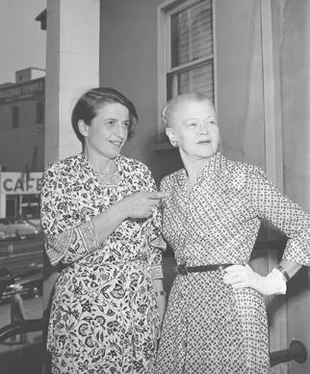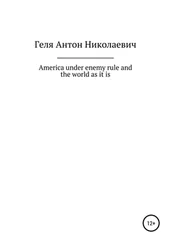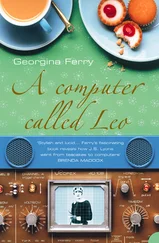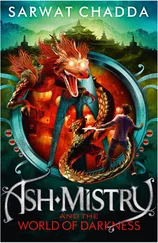Anne Heller - Ayn Rand and the World She Made
Здесь есть возможность читать онлайн «Anne Heller - Ayn Rand and the World She Made» весь текст электронной книги совершенно бесплатно (целиком полную версию без сокращений). В некоторых случаях можно слушать аудио, скачать через торрент в формате fb2 и присутствует краткое содержание. Жанр: Биографии и Мемуары, на английском языке. Описание произведения, (предисловие) а так же отзывы посетителей доступны на портале библиотеки ЛибКат.
- Название:Ayn Rand and the World She Made
- Автор:
- Жанр:
- Год:неизвестен
- ISBN:нет данных
- Рейтинг книги:5 / 5. Голосов: 1
-
Избранное:Добавить в избранное
- Отзывы:
-
Ваша оценка:
- 100
- 1
- 2
- 3
- 4
- 5
Ayn Rand and the World She Made: краткое содержание, описание и аннотация
Предлагаем к чтению аннотацию, описание, краткое содержание или предисловие (зависит от того, что написал сам автор книги «Ayn Rand and the World She Made»). Если вы не нашли необходимую информацию о книге — напишите в комментариях, мы постараемся отыскать её.
Ayn Rand and the World She Made — читать онлайн бесплатно полную книгу (весь текст) целиком
Ниже представлен текст книги, разбитый по страницам. Система сохранения места последней прочитанной страницы, позволяет с удобством читать онлайн бесплатно книгу «Ayn Rand and the World She Made», без необходимости каждый раз заново искать на чём Вы остановились. Поставьте закладку, и сможете в любой момент перейти на страницу, на которой закончили чтение.
Интервал:
Закладка:
There’s no better description of the Rosenbaums’ journey home than the opening pages of We the Living . What had formerly been a three-day train trip took two weeks. The third-class compartment the family rode in was packed with men and women who had been waiting trackside, for days or weeks, without a bath or change of clothing. The train was filthy. Everyone was hungry. Scraps of food and the relics of old valuables had to be secreted, out of sight, and guarded. When a few of the passenger cars broke down, the Rosenbaums scrambled for cramped space aboard a boxcar. The teenaged Rand observed every nuance of timidity, pretentiousness, callousness, and greed among her fellow passengers, including her family, and recorded it all with Dostoyevskian precision in her semiautobiographical novel a decade later.
The train stopped in Moscow before completing its journey to St. Petersburg. She briefly left the boxcar and stood in a city square just outside the railroad station. Moscow, which had become Russia’s capital city in March 1918, was enormous, she remembered thinking, and was only one city among hundreds or even thousands in the world. She had something to say to people in all of them, she reflected with a thrill; the audience for her plays and stories would be immense.
By late summer 1921, the permanent population of St. Petersburg was smaller by two-thirds than it had been at the outbreak of the world war. Even so, workers, the unemployed, and roaming hordes of demobilized Red soldiers occupied almost every square foot of habitable housing. Back in their native city, the Rosenbaums settled into a single room of their old apartment on Nevsky Prospekt, now inhabited by a sign painter and his family, who let them use some of their old furniture. There was no electricity or hot water. Nor was there food for those who didn’t work or study, since government-issued ration cards, the only way to lay hands on what meager and often rotten food there was, were distributed in workplaces and schools. Finding work was a priority. Under a brief amnesty for private merchants called the New Economic Policy (NEP), Zinovy obtained a position in a cooperative pharmacy, but such semiprivate businesses were soon closed down and their wares impounded. Like Uncle Vasili in We the Living , he refused to work for the Communists, the only work there was. Later, Rand explained, her father “wouldn’t do anything. To begin with, he wouldn’t have been accepted, as a former owner, into any Soviet job, and he didn’t want to do it. … He was enormously on strike.” Zinovy’s attitude made a strong impression upon Rand; to her it seemed heroic. Similarly, in the 1940s, she began to refer to her husband, the unemployed actor Frank O’Connor, as also being “on strike.” The original title of her third major novel, Atlas Shrugged , was, unmusically, The Strike .
It was Rand’s mother who kept the family financially afloat after returning to St. Petersburg. Anna, the former dentist and literary lady of the house, applied for and got a Soviet teaching certificate in 1921; for many years thereafter, she traveled the city by tram, instructing impoverished workers and their children in reading, writing, and foreign languages. By the mid-1920s, she was earning much-needed money on the side by tutoring and translating politically correct books and magazine articles for the Soviet state publishing house Gossizdat. Once Rand arrived in the United States, she sent her mother American novels to translate; Anna marveled at her daughter’s ability to choose works of proletarian fiction that Gossizdat would readily accept.
Anna was unusually resourceful and seems to have thrived in her new role as the family’s breadwinner. At one point, she wrote to Rand in America, “You and I have our love of work in common.” In a diminishing turnabout, Zinovy was placed in charge of keeping house, waiting in lines for rationed food, and cooking the millet or, in flush times, peas or potatoes that typically made a meal. Some of these were chores that Rand’s husband Frank would also perform.
Rand had left St. Petersburg a girl and had returned a young woman. In August 1921, she was admitted, free of charge, to Petrograd State University as a student in the newly formed Social-Pedagogical Division of the College of Social Sciences. This division combined the old disciplines of history, philology, anthropology, and philosophy under one academic roof. She declared a major in history and a minor in philosophy and began attending classes in October. As a student, as in little else, she benefited from the Bolshevik regime, since Lenin had adopted Kerensky’s policy of offering educational opportunities to Jews and women, while doing away with tuition fees and reducing the full term of study to three years. These changes were meant to help factory workers, but they made it possible for her to get the kind of education, and degree, that her parents could have only dreamed of. By her own lights, she made the most of it, studying as much as she could with the older, classically trained, Western-leaning liberal professors who were slowly being phased out, arrested, and deported. She took ancient, medieval, Western, and Russian history; logic; philosophy of the mind, a forerunner of psychology; French; biology; and historical materialism and the history of socialism, which were required courses. She read Hegel and Marx, Shakespeare, Schiller, and the great proto-Nietzschean novelist Dostoyevsky, whose mystical point of view she said she rejected but whose brilliant integration of plot, theme, and “philosophy of mind” she learned from and found exciting. She later said that Dostoyevsky was the world’s best interpreter of the psychology of evil. He “gives me the feeling of entering a chamber of horrors, but with a powerful guide,” she wrote in 1971. She was lucky to be admitted to the university when she was; by 1924, the year she graduated, a decree was issued barring admission to students from families who had owned property before the revolution or who had employed one or more servants at any time during the last three generations.
Determinism, the irreducible feature of a Marxist view of history, was on the rise at the university. Rand found the notion offensive, and not merely because “historical necessity” was the battle cry of the Bolsheviks. She recalled sitting outraged through a lecture in which the instructor offered proof that individuals act without free will. If a young man, he said, standing at the doorway of his home, could turn either left or right to reach a destination in the same amount of time, but knew that he would see a pretty waitress in a restaurant if he turned right, he would turn right. He would have no choice; his action would be determined by his nature. Rand thought, If you have a reason for what you do, you are making a choice. Later, she would define free will as the freedom to think or to avoid thinking in any particular situation.
During her stay in the Crimea and as a university student, she grew closer to her silent and usually inexpressive father, who was almost always at home while her mother worked. It was only after she and he began to be allies in opposition to the Bolsheviks, she later said, that she felt real love for him, a love that meant something beyond family affection and abstract respect. She and he shared a disgusted contempt for Communist ideology, which was perhaps best summarized by the slogan “from each according to his ability, to each according to his need,” and their contempt grew deeper and more acrid as “need” was increasingly revealed to be a euphemism for the demands of those in power—those exerting “pull,” as Rand would memorably write in Atlas Shrugged . Somewhat unreasonably, both father and daughter considered Anna much too eager to defend and appease her Communist employers, just as she had once been pleased to emulate the city’s intellectual elite. In fact, Zinovy severely disapproved of his wife’s working for the Communists at all, and Rand’s sister Nora once remarked that Anna was a little “pink.” Young Rand and her father proudly endorsed individualism and free will.
Читать дальшеИнтервал:
Закладка:
Похожие книги на «Ayn Rand and the World She Made»
Представляем Вашему вниманию похожие книги на «Ayn Rand and the World She Made» списком для выбора. Мы отобрали схожую по названию и смыслу литературу в надежде предоставить читателям больше вариантов отыскать новые, интересные, ещё непрочитанные произведения.
Обсуждение, отзывы о книге «Ayn Rand and the World She Made» и просто собственные мнения читателей. Оставьте ваши комментарии, напишите, что Вы думаете о произведении, его смысле или главных героях. Укажите что конкретно понравилось, а что нет, и почему Вы так считаете.












